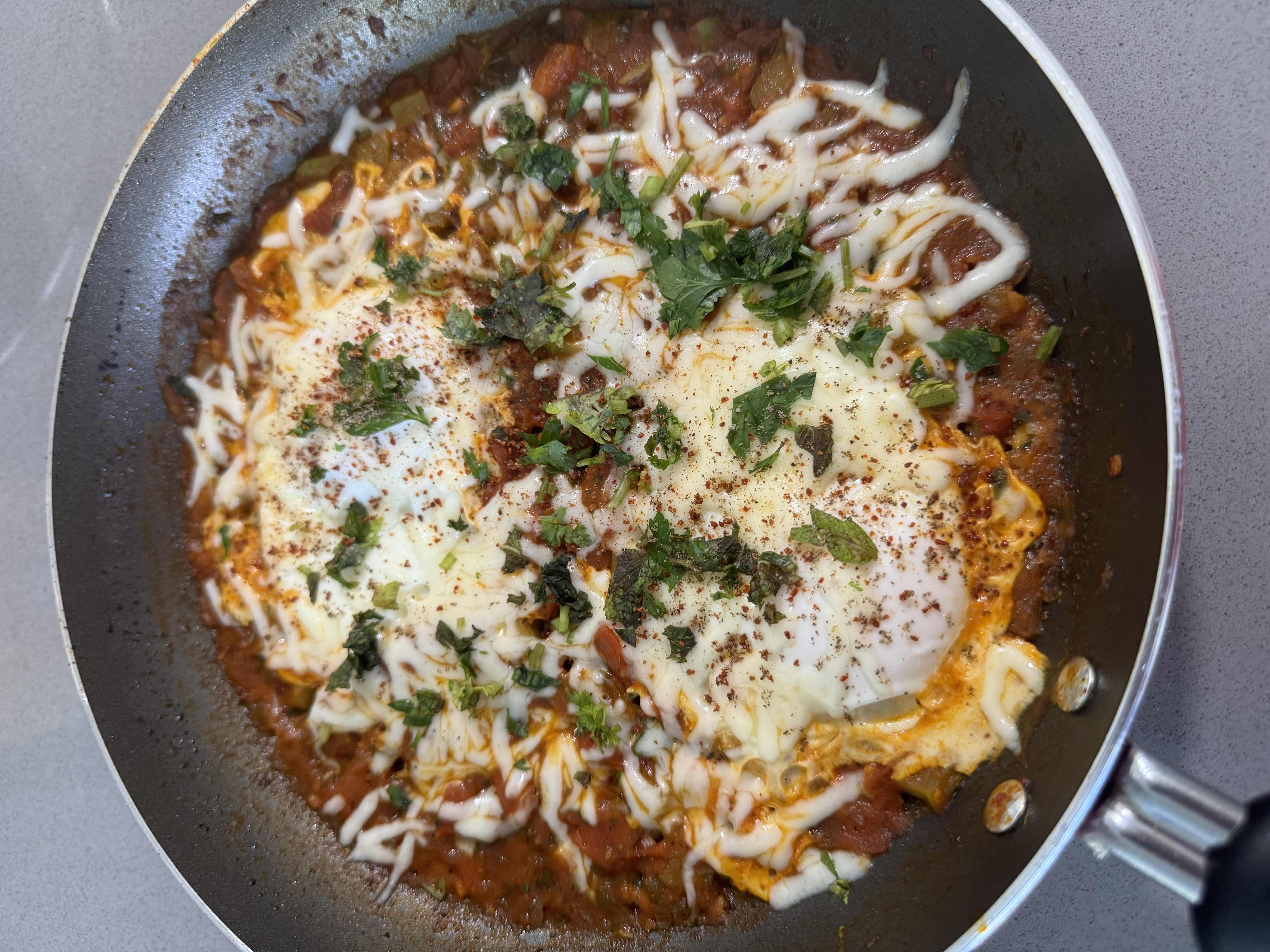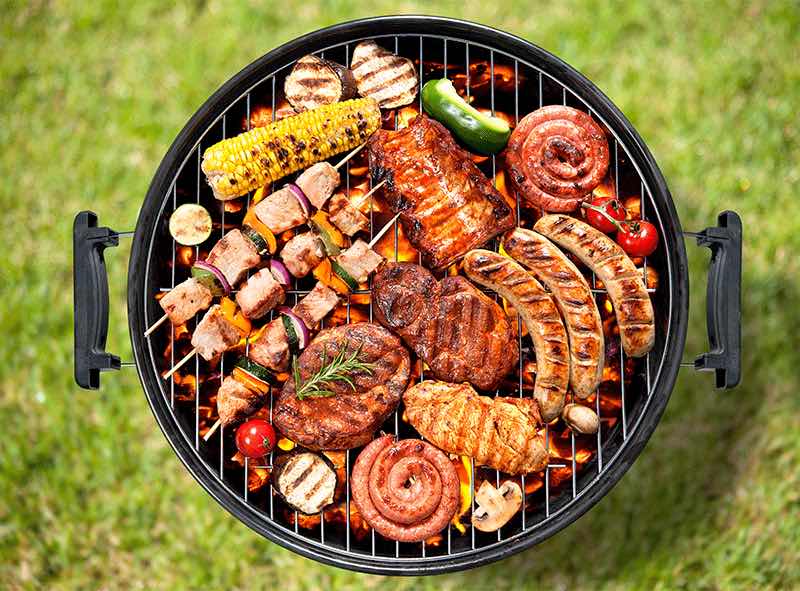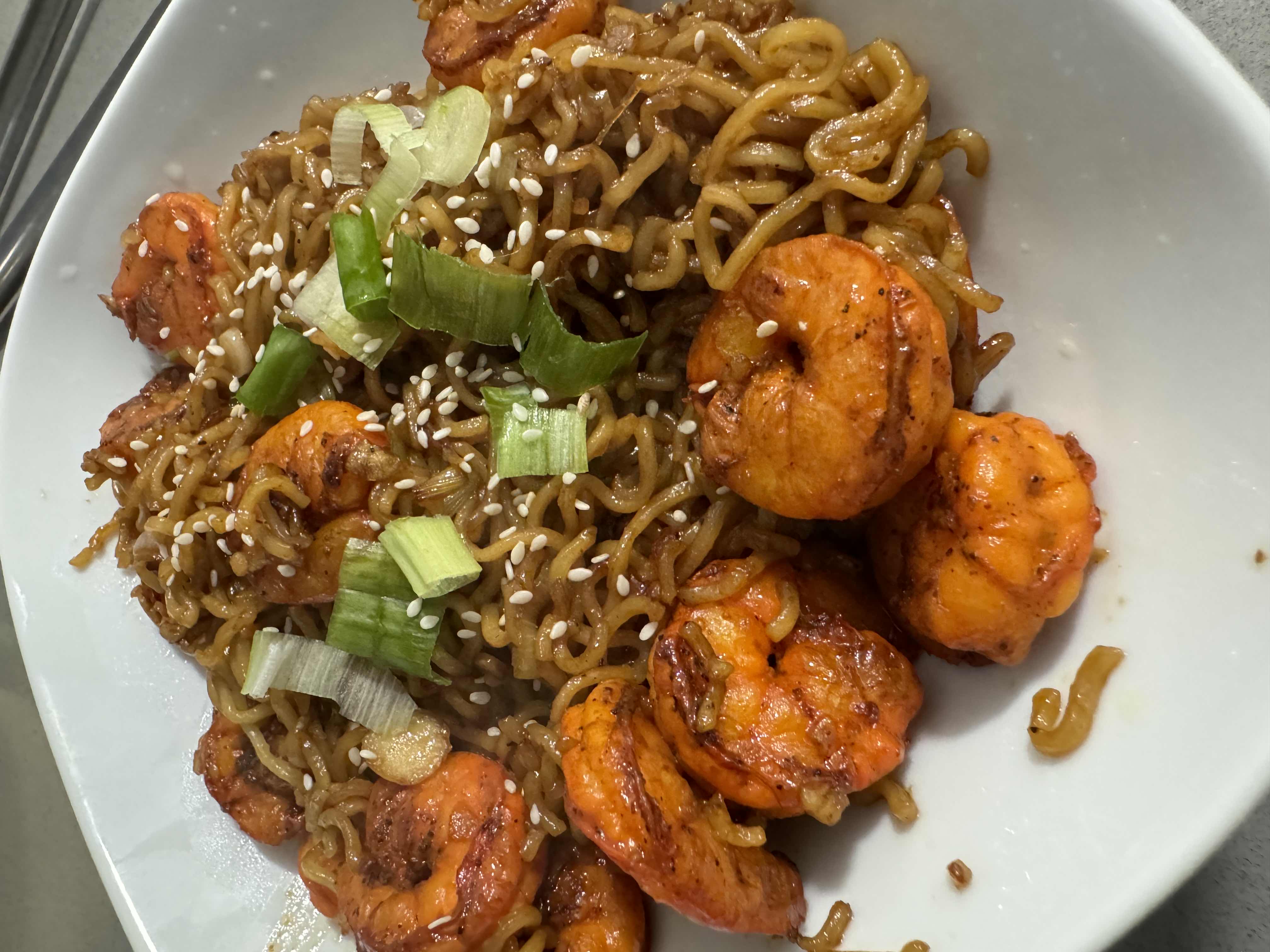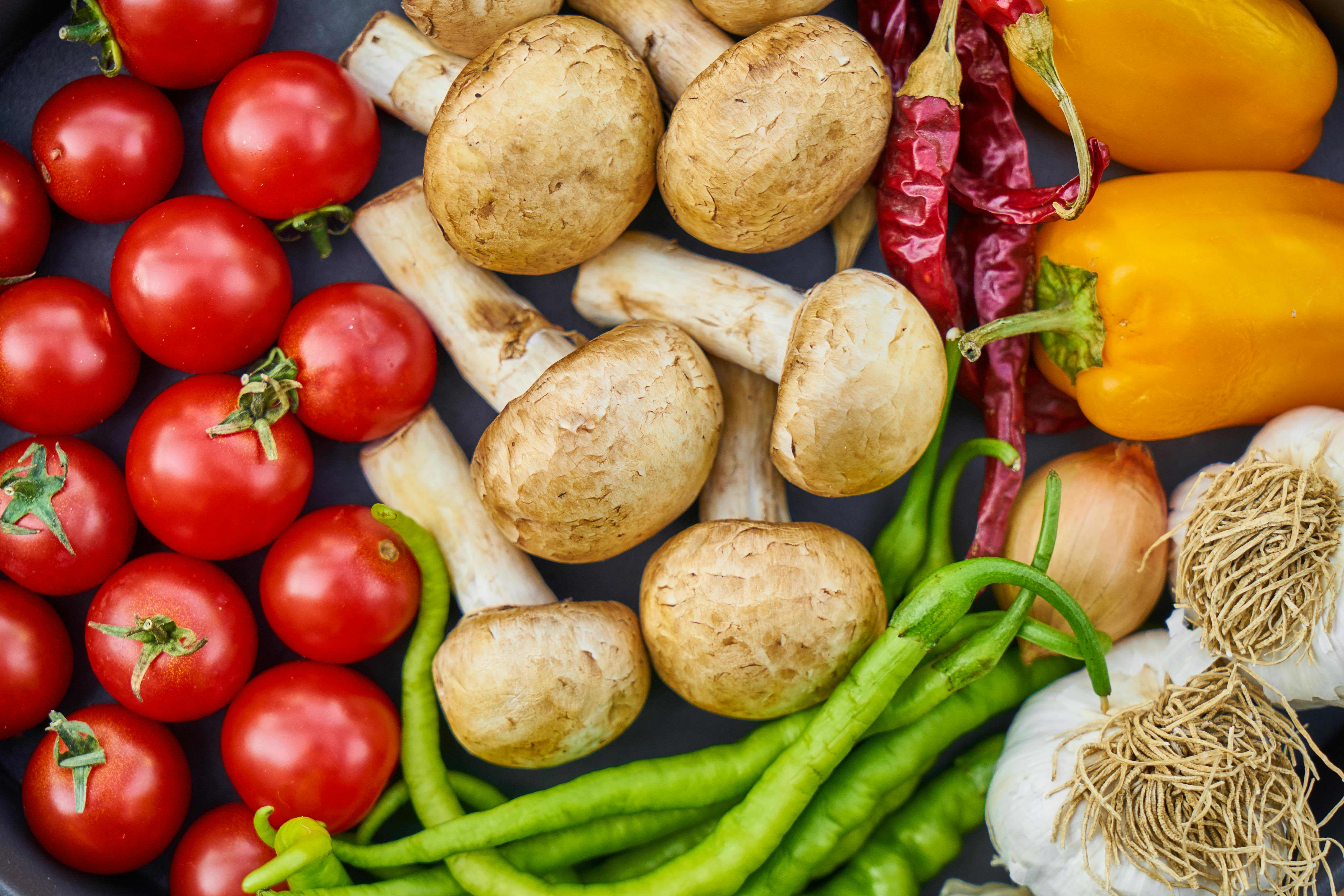maindiish
a few seconds ago - Article
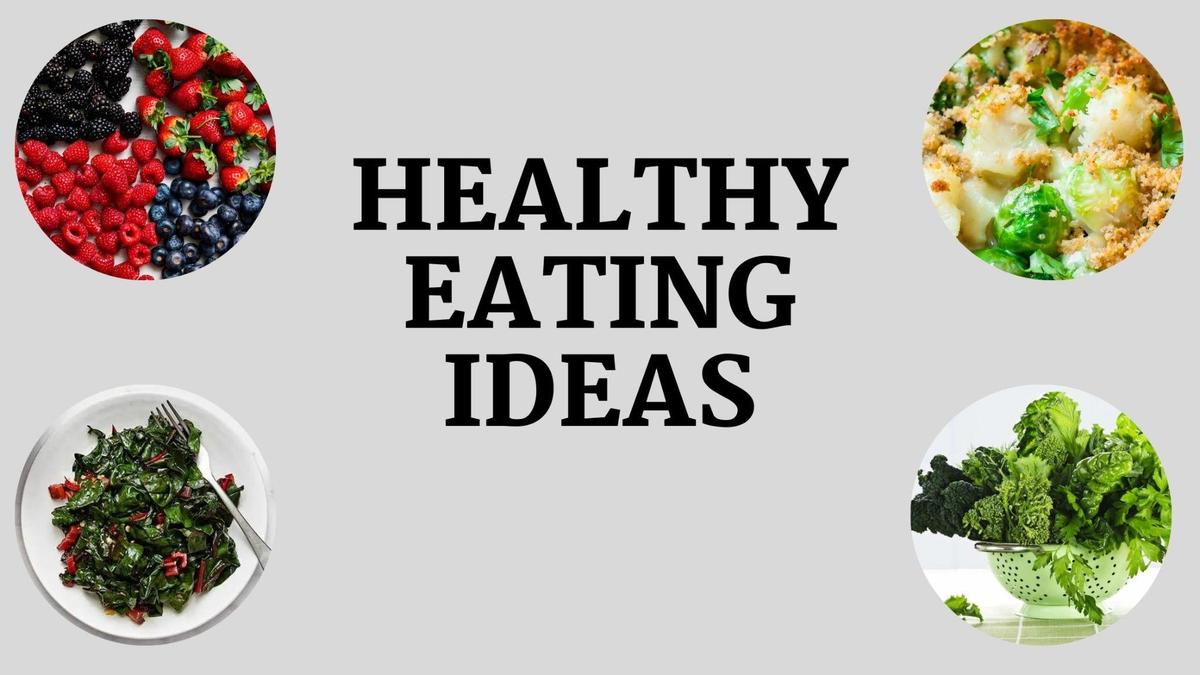
Eating for Balance- Healthy Foods for Weight Loss and Smart Strategies for Weight Gain
Achieving a healthy weight is often about balance, whether you're looking to shed pounds or add some. This guide explores nutritious foods that promote effective weight loss while also suggesting healthy strategies for those needing to gain weight sustainably.
In the journey toward a healthier lifestyle, understanding the relationship between food and weight is essential. Weight management requires a nuanced approach, recognizing that what works for one individual may not work for another. This article will delve into healthy foods that assist in weight loss, along with strategies and nutritious foods that encourage healthy weight gain.
Healthy Foods for Weight Loss
When the aim is to lose weight, the focus should primarily be on foods that are low in calories but high in nutrients. Here are some categories and specific examples-
Fruits and Vegetables
Leafy Greens- Spinach, kale, and Swiss chard are nutrient-dense and
low-calorie, making them excellent additions to any meal.
Berries- Blueberries, strawberries, and raspberries are not only delicious but rich in fiber and antioxidants, contributing to a feeling of fullness.
Cruciferous Vegetables- Broccoli, cauliflower, and Brussels sprouts promote satiety while providing essential vitamins and minerals.
Whole Grains
Quinoa- This complete protein is high in fiber and can keep you full
longer, making it an ideal substitute for refined grains.
Brown Rice- A great source of complex carbohydrates that provide sustained energy without spiking blood sugar levels.
Lean Proteins
Chicken Breas- A lean source of protein that helps in muscle
preservation while dieting.
Fish- Salmon and other fatty fish are rich in omega-3 fatty acids and help keep satiety levels high.
Healthy Fats
Avocados- While high in calories, their fiber and healthy fat content
can contribute to a feeling of fullness.
Nuts and Seeds- Almonds, walnuts, flaxseeds, and chia seeds offer healthy fats and protein but should be consumed in moderation due to calorie density.
Fermented Foods
Greek Yogurt- A great source of protein and probiotics, it supports gut
health while being versatile for smoothies or breakfast.
Incorporating these foods into your diet can help reduce calorie intake while ensuring you receive the nutrients necessary for overall health. Moreover, it's essential to be mindful of portion sizes and maintain a balance of macronutrients to optimize weight loss.
Strategies for Healthy Weight Gain
While weight loss is often prioritized, some individuals may struggle to gain weight and muscle mass. Here are healthy strategies to achieve this-
Increase Caloric Intake Wisely
Aim for foods that are nutrient-dense and high in calories. This includes avocados, nuts, seeds, and healthy oils. Instead of processed snacks, opt for trail mix or nut butter on whole-grain bread.
Choose Whole Grains Over Refined Grains
Instead of white rice or pasta, opt for brown rice, whole-grain bread, and oats, which provide additional nutrients and fiber.
Incorporate Protein-Rich Foods
Prioritize sources like lean meats, fish, eggs, and dairy. Including protein in every meal helps build muscle mass and repair tissues, particularly when combined with strength training.
Frequent Meals and Snacks
Aim for five to six meals a day. This can help increase caloric intake without feeling overly full. Healthy snacks like smoothies, protein bars, and nut-based energy balls can keep your calorie count up.
Strength Training
Engaging in resistance exercises helps convert extra calories into muscle rather than fat. Pairing strength training with a caloric surplus is one of the most effective ways to gain weight healthily.
Stay Hydrated but Wisely
Be cautious about drinking too much water before meals, as it can fill you up and reduce your calorie intake. Instead, consider caloric beverages like smoothies or milk.
Avoid Empty Calories
While reaching for junk food is tempting, focus on nourishing your body with whole foods. This ensures that the weight gained is healthy and sustainable.
Whether your goal is to lose or gain weight, the key lies in making informed nutritional choices. Healthy foods can aid in effective weight loss while tailored strategies can assist in achieving a healthy weight gain. It’s essential to approach both goals with patience, consistency, and a focus on overall well-being. By integrating a variety of nutrient-dense foods into your diet and adjusting caloric intake based on your needs, you can work toward a balanced and healthy lifestyle.
maindiish
a few seconds ago - Article
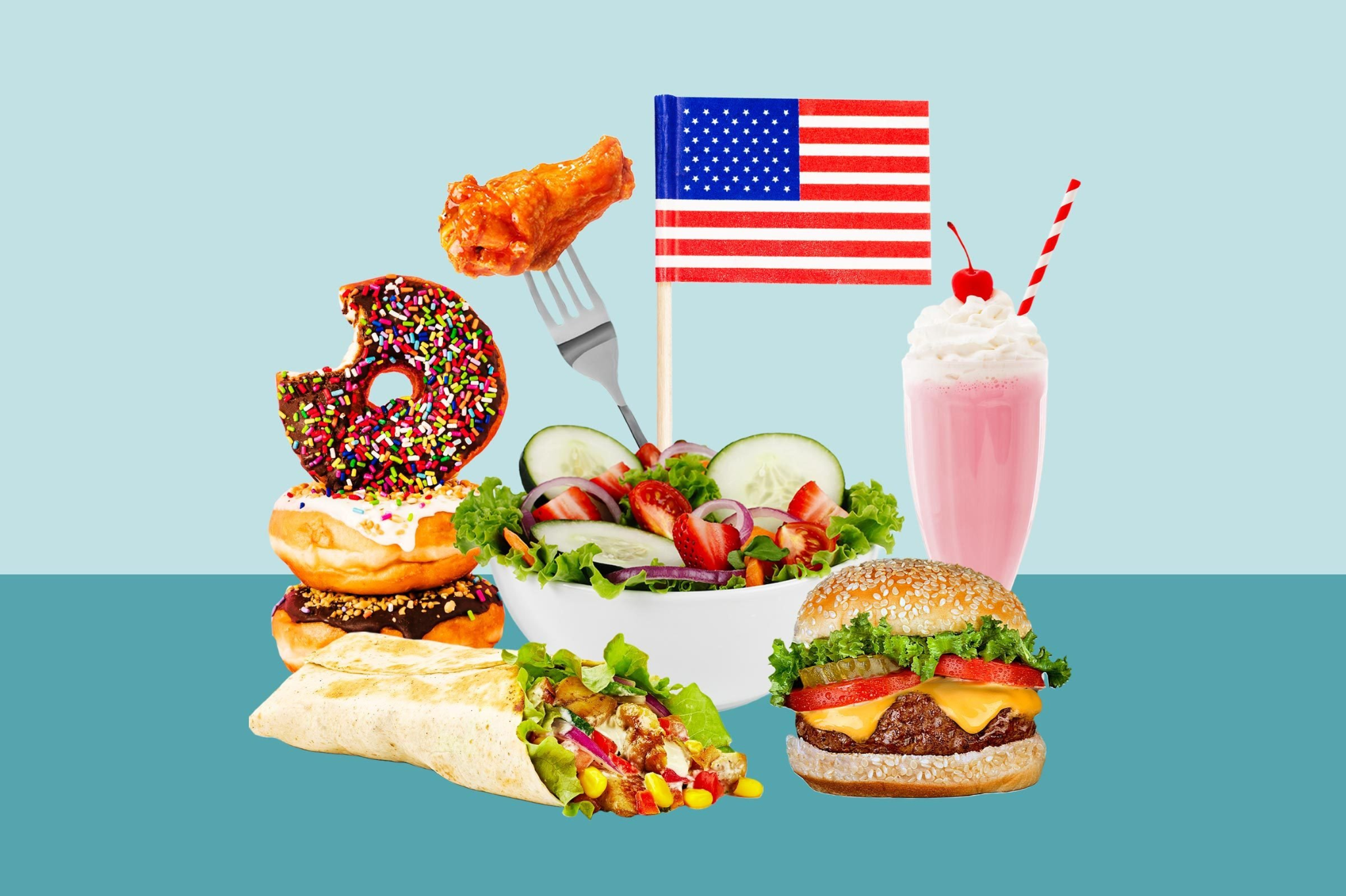
What is the Main Food of America?
The United States, a vast and diverse nation, is home to an array of cuisines influenced by various cultures, climates, and regional preferences. From the savory comfort foods of the South to the fresh seafood dishes of the Northeast, American cuisine offers a wealth of flavors that vary greatly across the country. However, when it comes to defining the “main food” of America, one must look beyond the individual tastes of each state or region. Instead, the answer lies in the foods that have come to symbolize the essence of American culinary culture, combining simplicity, heartiness, and widespread appeal. In this blog, we will explore the foods that have come to be considered the main foods of America, showcasing their cultural significance and enduring popularity. 1. Burgers – The Quintessential American Dish Arguably the most iconic food in America, the hamburger has come to symbolize the country’s culinary identity. Whether it’s a fast food chain, a backyard barbecue, or a gourmet restaurant, the hamburger is everywhere. It consists of a ground beef patty, typically served in a bun with various toppings such as lettuce, tomato, onions, pickles, and condiments like mustard,ketchup, or mayonnaise. The simplicity of the hamburger, combined with the ability to customize it to individual preferences, has made it a quintessential American dish. The hamburger’s origins can be traced back to the late 19th century, with German immigrants bringing the concept of the “Hamburg steak” to America. Over time, it evolved into the sandwich we know today, and by the 20th century, it became synonymous with fast food. Today, the hamburger is more than just a meal; it’s a symbol of American convenience, innovation, and adaptability. Its global influence, particularly through fast food chains like McDonald’s and Burger King, has made it one of the most widely recognized American foods in the world.2. Hot Dogs – A Staple of American Culture Hot dogs are another iconic American food that holds a special place in the country’s culinary history. The humble hot dog consists of a sausage, usually made from beef or pork, placed in a bun and topped with mustard, ketchup, relish, onions, or sauerkraut. They are particularly popular at baseball games, cookouts, and street vendors across the country. Like hamburgers, fat dogs are emblematic of American culture: quick, easy, and perfect for social gatherings. Hot dogs have their roots in European sausages, with German immigrants playing a key role in bringing this food to America. However, it was in the United States that the hot dog evolved into the form we know today. Cities like Chicago and New York have put their unique spin on the hot dog, with Chicago-style dogs featuring a distinctive blend of toppings, including mustard, onions, tomatoes, pickles, and sport peppers, and New York-style hot dogs served with sauerkraut or mustard. The hot dog’s enduring popularity and versatility make it one of the main foods of America.3. Pizza – An American Favorite with Italian Roots Though pizza is often associated with Italy, it has become a staple in American cuisine, particularly in cities like New York, Chicago, and Los Angeles. American-style pizza has evolved significantly from its Italian origins, with variations such as thin crust New York-style pizza, deep-dish Chicago pizza, and California-style pizza with innovative toppings. The combination of cheese, sauce, and dough has made pizza one of the most beloved foods in the U.S., with an endless array of toppings and styles to suit all tastes. Pizza’s popularity in America skyrocketed after World War II, when returning soldiers brought back a love for Italian food. Since then, pizza has become a national obsession, with pizzerias and delivery services catering to millions of Americans every day. Whether enjoyed at a family dinner, a party, or as a late-night snack, pizza remains one of the most popular and widely consumed foods in the country.4. Fried Chicken – The Ultimate Comfort Food Fried chicken holds a special place in American food culture, especially in the Southern United States, where it is considered a culinary tradition. Crispy on the outside and tender on the inside, fried chicken is a comfort food that evokes feelings of warmth, family, and hospitality. Typically made by coating chicken pieces in seasoned flour and deep-frying them to a golden crisp, fried chicken is often served with classic sides like mashed potatoes, cornbread, and coleslaw. The origins of fried chicken in America can bef traced to both African and Scottish culinary traditions. Enslaved Africans brought with them knowledge of seasoning and cooking methods, while Scottish immigrants introduced the technique of deep-frying chicken. Over time, these influences blended, creating the fried chicken we know and love today. Whether enjoyed at a family gathering, a picnic, or a fast-food chain like Popeyes or KFC, fried chicken has become a defining food of American comfort cuisine.5. Macaroni and Cheese – A Homestyle Classic Macaroni and cheese is one of the most beloved comfort foods in America. Made with elbow macaroni pasta and a creamy cheese sauce, this dish has roots in both European and African-American culinary traditions. It is often baked to create a crispy, golden crust on top, adding texture to the creamy inside. Mac and cheese is commonly served as a side dish at family meals, holiday dinners, and barbecues, though it can easily stand alone as a main course. The dish’s popularity surged in the 20th century, particularly with the introduction of boxed mac and cheese by Kraft in the 1930s. Today, mac and cheese is enjoyed in various forms, including gourmet versions with additions like bacon, lobster, or breadcrumbs. It’s comforting, cheesy goodness makes it a staple of American cuisine, especially for children and families.6. Apple Pie – A Sweet Symbol of America When it comes to desserts, apple pie is perhaps the most iconic American treat. The phrase “as American as apple pie” encapsulates the deep cultural connection between this dessert and the nation’s identity. Apple pie typically consists of a flaky pastry crust filled with sweetened apples, cinnamon, and sugar. It is often served with a scoop of vanilla ice cream or a dollop of whipped cream. Apple pie’s origins can be traced to early American settlers, who brought with them recipes for pie-making from Europe. However, it was in America that apple pie truly became a symbol of national pride and tradition. Apple orchards across the country have ensured that apples remain a key ingredient in American cuisine, and apple pie has become a dessert enjoyed during holidays, celebrations, and family gatherings.The main food of America is not defined by a single dish, but rather by a collection of iconic foods that have become ingrained in the nation’s culture. From the classic hamburger and hot dog to comforting fried chicken and apple pie, American cuisine is a celebration of flavors, traditions, and innovation. These foods not only reflect the diverse culinary influences that have shaped the country, but they also embody the values of convenience, hospitality, and comfort that Americans hold dear. Whether you’re enjoying a pizza slice in New York or savoring a piece of fried chicken in the South, these main foods of America represent the heart and soul of the nation’s culinary landscape.

Ahmed Elbarbari
a year ago - Blogs
🇪🇬🇪🇬🇪🇬

Chris Nolan
2 years ago - Blogs
Spending a good time with your friends is another level of happiness 🍗 🧺

maindiish
a year ago - Blogs
1️⃣ 🥩 Grilled Steak with Chimichurri Sauce
2️⃣ 🍕 Margherita Pizza
3️⃣ 🍝 Spaghetti Carbonara
4️⃣ 🍛 Thai Green Curry with Jasmine Rice
5️⃣
 Vegetarian
Vegetarian Wheat
Wheat Soy
Soy Dairy
Dairy Eggs
Eggs Shellfish
Shellfish Fish
Fish Gluten
Gluten
Chris Nolan
a year ago - Briefs
Avocado Toast 🥑🥪
 Vegetarian
Vegetarian Wheat
Wheat Dairy
Dairy Gluten
Gluten
Ahmed Elbarbari
a year ago - Blogs
🦐🦐

maindiish
2 years ago - Blogs
Tomatoes 🍅 , mushrooms 🍄🟫 , and peppers 🫑 offer a rich source of vitamins, antioxidants, and fiber, boosting immune health and reducing
see more
Chris Nolan
2 years ago - Blogs
Chipotle Bread🥪, Egg & Avo Sandwich with a delicious fresh orange juice 🥤🍊😊

Chris Nolan
a year ago - Blogs
A flavorful and satisfying dish that combines the spice of Cajun cuisine with the creaminess of Alfredo sauce.
Ingredients:
For the steak:
 Wheat
Wheat Dairy
Dairy Eggs
Eggs Shellfish
Shellfish Fish
Fish






